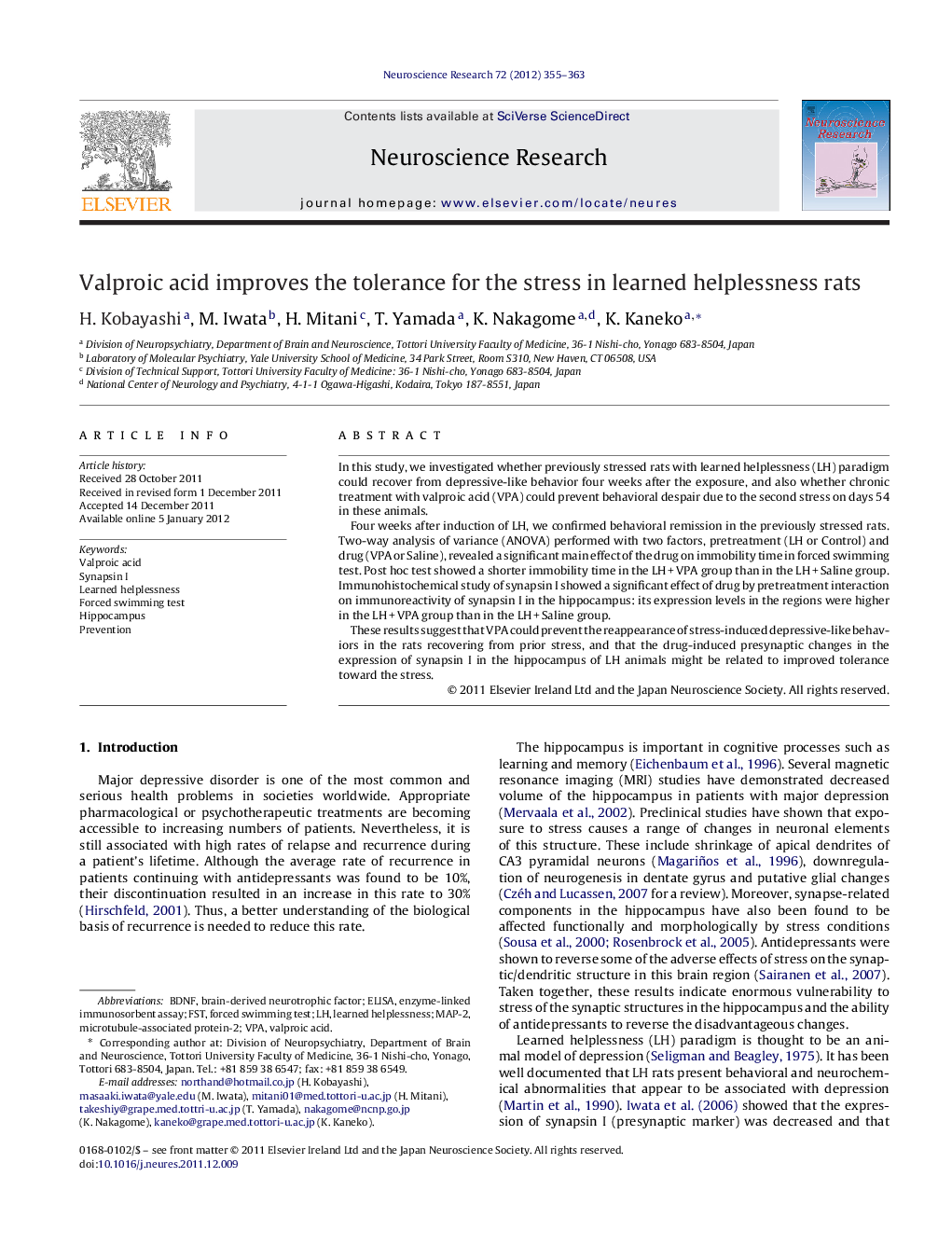| Article ID | Journal | Published Year | Pages | File Type |
|---|---|---|---|---|
| 4351689 | Neuroscience Research | 2012 | 9 Pages |
In this study, we investigated whether previously stressed rats with learned helplessness (LH) paradigm could recover from depressive-like behavior four weeks after the exposure, and also whether chronic treatment with valproic acid (VPA) could prevent behavioral despair due to the second stress on days 54 in these animals.Four weeks after induction of LH, we confirmed behavioral remission in the previously stressed rats. Two-way analysis of variance (ANOVA) performed with two factors, pretreatment (LH or Control) and drug (VPA or Saline), revealed a significant main effect of the drug on immobility time in forced swimming test. Post hoc test showed a shorter immobility time in the LH + VPA group than in the LH + Saline group. Immunohistochemical study of synapsin I showed a significant effect of drug by pretreatment interaction on immunoreactivity of synapsin I in the hippocampus: its expression levels in the regions were higher in the LH + VPA group than in the LH + Saline group.These results suggest that VPA could prevent the reappearance of stress-induced depressive-like behaviors in the rats recovering from prior stress, and that the drug-induced presynaptic changes in the expression of synapsin I in the hippocampus of LH animals might be related to improved tolerance toward the stress.
► We produced animals with depressive-like behaviors using the learned helplessness paradigm. ► We investigated preventive effects of valproic acid on recurrence of depressive-like behaviors. ► Valproic acid significantly reduced immobility time in forced swimming test. ► Synapsin I was increased only in learned helplessness rats. ► Valproic acid may have a preventive effect on the recurrence of depressive symptoms.
